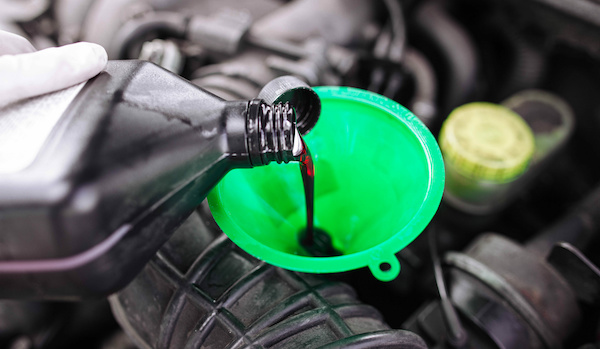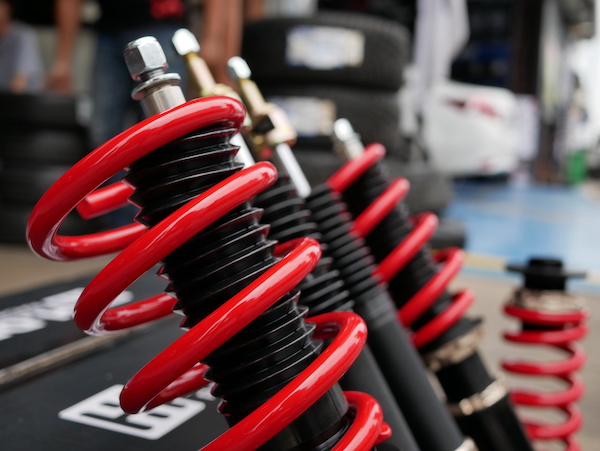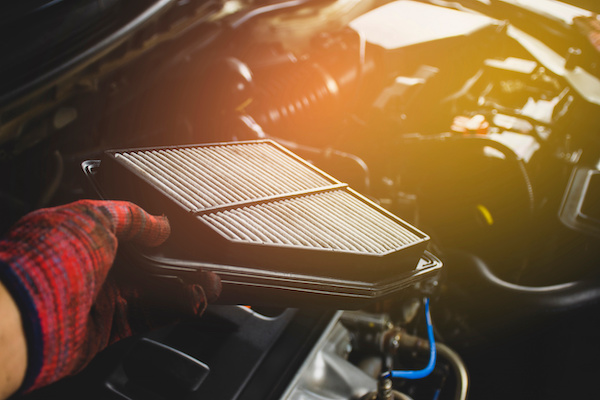Posted on 2/28/2023

As an essential component of your vehicle's powertrain, the transmission is in charge of transferring power from the engine to the wheels. It's a complex system that requires proper maintenance to keep it running smoothly, and one of the most critical aspects of transmission care is changing the fluid regularly. So, how often should you change your transmission fluid? The answer depends on a few things, such as the make and model of your car, the type of transmission you have, and how you use your vehicle. Most car manufacturers recommend changing the transmission fluid every 30,000 to 60,000 miles. However, some high-performance vehicles or those used for heavy-duty purposes may require more frequent fluid services. It's best to consult your owner's manual or a professional technician to determine the ideal interval for your specific vehicle. Ignoring your transmission fluid can lead to serious problems down the road. Over time, the fluid can become contaminated wit ... read more
Posted on 1/30/2023

The reason behind a comfortable and smooth drive is your vehicle's suspension. It is essentially four springs on each wheel that absorb all bumps and potholes on the road. Different types exist - from smooth and high from the ground to stiff and low, depending on the specifications of the car. The bad thing is that there aren't a lot of customizations after it leaves the factory or, in other words, you get what you pay for and nothing more. If you are looking for adjustability, aftermarket suspension kits have plenty of options from which to choose. Here you will find some of them and what they do differently from the factory ones. What Does “Aftermarket” Mean? Let's start with the meaning of the term aftermarket. It refers to brands and components not made or supervised by the original manufacturer. Aftermarket parts are used for repairs or upgrades because of the possibilities they offer. Air Suspension Air suspension systems work by lifting the chase from ... read more
Posted on 12/30/2022
.jpeg)
The topic of vehicle maintenance is a precarious one. Everyone has an opinion on which is the best vehicle maintenance schedule. Unfortunately, most have their merits but make it difficult to choose which vehicle maintenance schedule to follow. The following are the vehicle maintenance factors to consider to choose the schedule to follow: Miles Over Time The most popular vehicle maintenance schedule says you should take your car in for service every 30,000 miles. However, the amount of time a car takes to cover that distance depends on its usage. The fact is that cars will undergo different types and levels of damage even when they travel the same distance or for the same period. Vehicle components will also experience varying wear and tear levels. It is hence vital to come up with a conservative estimate of the distance necessary for routine maintenance. The mechanic will also help you come up with one. Warranty Most vehicles have a warranty which determines how often you shoul ... read more
Posted on 11/22/2022

The air filter has a more important job than most people think. It is the component that helps to purify the air going into the engine combustion chamber. It collects pollen, dust, and other harmful particles that may get in the way of the engine’s operation. The filter should be changed every 12,000 miles or as specified by your vehicle’s manufacturer. Most people have them changed during tune-ups or regular service to make their lives a little easier. Besides mileage, you can catch the warning signs of a bad filter: Dark Exhaust Since there is a reduced amount of air in the engine, your vehicle will compensate by burning more gas. When this happens, you may end up with black or dark exhaust smoke. Poor Engine Performance A blocked engine filter can cause a number of performance issues, including misfiring, stuttering, hesitation, and overall less horsepower. Check Engine Light Comes On A clogged filter can cause ... read more
Posted on 10/31/2022

Are you looking for ways to increase your fuel efficiency? With the prices of gas these days, you want to save as much as possible. Read on below on how to increase it and save money on gas. Tips Make sure your tires are inflated Keep your tires properly inflated. This is especially important with winter tires and summer tires. Properly inflated tires can improve fuel efficiency by 3% to 5%. Don't drive too fast This can increase the amount of air that must be pushed out of the way, which increases drag. Besides, speeding can get you an unwanted ticket that you'll have to pay. With that said, it's better that you don't speed, for the sake of gas and truly your wallet. Instead, drive at a steady speed Drive at a steady speed in the right lane, so that you're not constantly accelerating into traffic jams or braking after passing other cars. Of course, you can't help it if you live in a city, but try your best! Cruise Control When driving ... read more